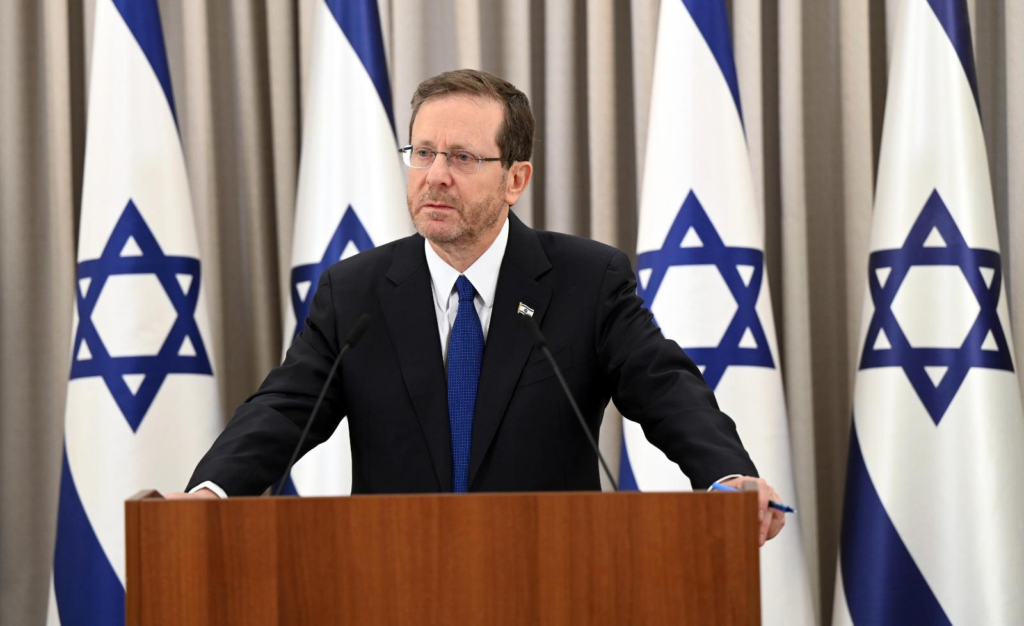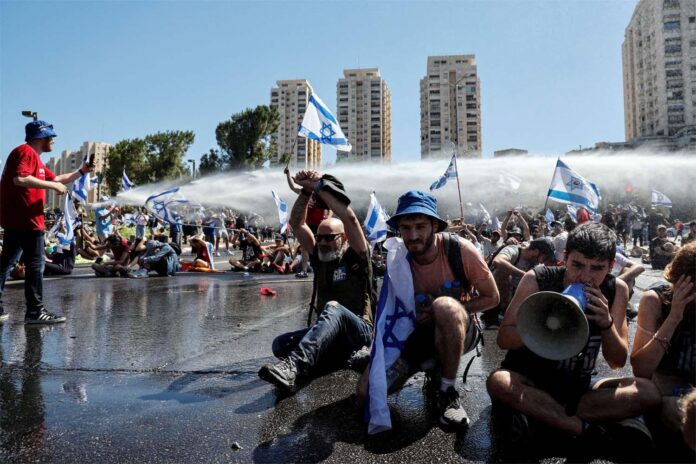In a nation known for its vibrant political landscape and passionate civic engagement, Israel finds itself embroiled in a historic crisis that has ignited some of the largest demonstrations in its history. Tens of thousands of protesters, undeterred by the sweltering summer heat, have marched nearly 45 miles from Tel Aviv to Jerusalem, converging outside the parliament building in fervent opposition to a package of proposed reforms.
At the center of the turmoil is the “reasonableness” bill, the first of several reforms aimed at reining in the powers of the courts, which the government argues have become too overreaching. However, critics view the legislation as an assault on Israel’s democratic principles, warning that it could imperil the very foundations on which the nation was built.
As the voting on the contentious bill is underway, protesters have raised their voices in unison, demanding that their leaders heed their concerns and find a middle ground. Unfortunately, the situation escalated when police intervened, deploying water cannons and making arrests, further exacerbating the already tense atmosphere.
The stakes are high, and this issue has polarized the nation like never before. The demonstrations have drawn support from major firms, including banks, that have gone on strike in solidarity with the protesters. The Israeli President, Isaac Herzog, has not minced words, describing the country as being “in a state of national emergency.” He has passionately urged political leaders to come together and reach a compromise that will put an end to the unrest.

The emotional scenes on the streets have not only showcased the dissent against the proposed reforms but also revealed the incredible diversity of the demonstrators’ backgrounds and motivations. From students to business leaders, from former heads of security services to ordinary citizens, they have united under the banner of protecting democracy. Even thousands of reservists, including crucial air force pilots, have expressed their disapproval by refusing to volunteer for service, raising concerns about the potential impact on Israel’s military preparedness.
The situation has drawn attention not only domestically but also on the international stage, with the US President, Joe Biden, explicitly voicing his concerns about the “divisive” bill and calling for its postponement.
As the nation grapples with this crisis, it is evident that both sides are deeply passionate about their beliefs. However, finding common ground is paramount to preserve Israel’s cherished democratic values. The coming days will determine whether the protests and strikes can compel the government to reconsider its reforms or whether the reforms will indeed come into force, changing the fabric of Israeli society forever.
As the sun sets on another day of demonstrations, the question lingers: Can Israel emerge from this tumultuous chapter with its democratic identity intact, or will it succumb to the weight of internal strife? Only time will reveal the answer, but for now, the streets continue to echo with the resolute cries of citizens unwilling to surrender their vision of a democratic future.





